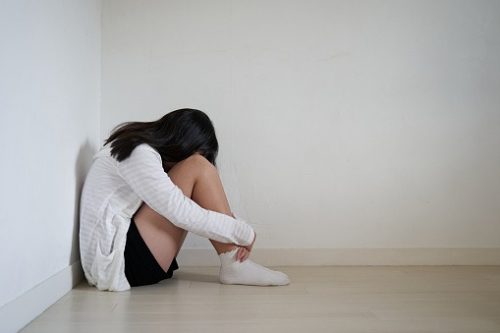“Wake up, wake up. Please wake up!” These are the words I kept repeating over and over while I was in front of my father’s casket. It was an entirely devastating event in my life I wish I never experienced. I thought I could get over it as it would be easy for me to accept the truth once I finally saw him lying peacefully on the coffin. But it was too painful that I snapped and lost all the right senses I have. I wanted him to wake up and tell me things will be okay. Unfortunately, that was way too impossible to happen, of course.
My father died, I bet, without agony since it was merely a heart attack. But I should not have to be thankful for that because I wasn’t there when he died. I was too damn busy living my life and enjoying every inch of freedom I have away from home. Am I selfish? I bet I am. All these years, I kept blaming myself for that because I was never entirely present in his life.
“That’s okay,” I told myself. “At least you didn’t have to see my father suffer long, which can be too dreadful and exhausting at some point.” Well, it was a lie that I had to tell myself. I need to convince myself that my father’s death is acceptable and that my guilt of not being there should be excused. But who am I kidding? It was emotionally and mentally painful. Everything about his death is unacceptable. And the fact that I wasn’t even there makes it hard for me to consider accepting it.

Source: pixabay.com
Grief And Mental Health
After a while of thinking about the guilty feeling I have, I went on full self-isolation. I have this weird feeling that people around me are blaming me and talking behind my back. I’m sure it was not my fault. But the way they looked at me, it was as if I’m the one who killed my dad. That thought lingers for a long period that it made me choose to self-destruct.
From then on, I became mentally unstable. I often see myself crying in the dark for no reason. I get too anxious and stress just thinking about going out and talking to people. The devastating feeling I have after my father’s death grew more every day, and it made me a different person. Yes, it was a mental health issue now, and it is called depression.
What are the four types of depression?
The four common types of depression that people know are Major Depression, Psychotic Depression, Peripartum or Postpartum Depression, and Situational Depression.
What is the significantly reliable symptom of depression?
Signs and symptoms of depression differ from one person to another. Some individuals can show tearfulness, feelings of sadness, emptiness, or hopelessness, while others may appear to have a sense of uplifted spirit despite struggling with mental health. The same goes for those who often feel angry, irritable, or frustrated, while others can stay calm and relaxed. However, it can be a strong manifestation of clinical depression when an individual loses interest or pleasure in almost all normal activities he once likes, such as sex, hobbies, or sports.
What are the five signs of mental illness?
The common five signs of mental illness start with excessive worry or anxiety and paranoia. There is also a long-lasting sadness and unexplained irritability. Extreme changes in moods and dramatic changes in sleeping or eating pattern are also present. Lastly, there is social withdrawal.
Is violence a symptom of depression?
Some studies often relate violence to depression. That is because depressed individuals are often three times more likely to commit and engage in a violent crime. That is due to the mental health’s effect that promotes genetic vulnerability and faulty mood regulation.

Source: pixabay.com
How do I know if I am bipolar?
Mania or bipolar disorder can cause symptoms that can determine the condition. It includes feelings or over happiness for long periods. There is also less need for sleep and feeling extremely impulsive or restless. Bipolar disorder can also make you easily distracted and make you talk very fast with racing thoughts.
What are the signs of bipolar in a woman?
The signs of bipolar in a woman mostly happen in general. These include having a high or irritated mood, rapid speech flow, reduced sleep, flights of ideas or racing thoughts, and elevated self-esteem or grandiosity. There is also a level of unexplained energy but then gets easily distracted.
What triggers bipolar?
The triggers of bipolar usually manifest in the physical aspect. There is a sleep disturbance that often leads to insomnia. There is also an overwhelming problem in everyday life, such as financial strain, work or school pressure, and relationship issues. But those are not limiting factors. Bipolar disorder can get triggered by drug or alcohol abuse, periods of high stress, a series of traumatic events, the death of a loved one, and genetics.
What are the signs of anger issues?
Anger issues are different from one person to another. Often, the emotion gets misunderstood because many people think it only comes from constant irritability. Though that can add as a trigger, the rage and anxiety can come from emotional symptoms caused by particular life stressors. Thus, if there is an overwhelming feeling of looking for trouble or imagining deeply about hurting oneself and others, the person is experiencing an anger disorder. It is vital to organize and manage thoughts before the worse gets into action.

Source: pixabay.com
What causes hate?
The strong feelings of hatred can come from an intense emotional developing dislike for a lot of things. Individuals might begin to hate another person or group when they feel envious. If the strong feeling makes them want what others have, the feelings tend to grow. Hatred can come from people’s perceptions of others. But it also affects their personal history and its effects on our personality, ideas, beliefs, feelings, and especially their identity. It can also come from failure, guilt, doubt, and misunderstanding.
What happens in the brain when we get angry?
The brain, when we get angry, reacts differently. When in a state of outburst, the heart rate, arterial tension, and testosterone production increase. It then released neurotransmitter chemicals causing you to experience a burst of energy that desires to take immediate protective action. These feelings usually last for about a couple of minutes. However, some individuals tend to experience an uncontrollable rage that stays longer.
What parts of the brain get affected by depression?
The parts of the brain that gets affected by depression include the main subcortical limbic brain regions. These are the amygdala, hippocampus, and dorsomedial thalamus.